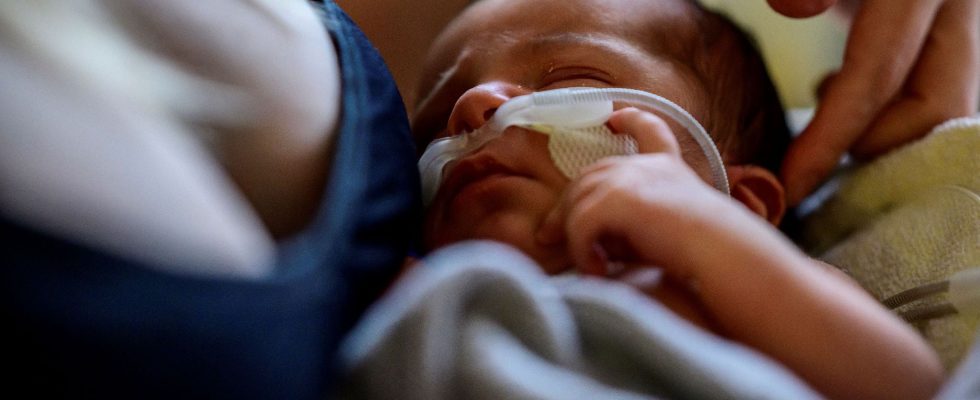A less hectic season on the epidemic front. This is the main conclusion of a first assessment made public, Tuesday February 27, by Grégory Emery, Director General of Health. The winter season rhymes with the circulation of numerous viral illnesses, including influenza and bronchiolitis, affecting millions of people each year.
The circulation of three acute respiratory infections is particularly scrutinized by health authorities: that of Covid, influenza and bronchiolitis. The 2022-2023 winter season, deemed “terrible” by Grégory Emery, caused an explosion in calls to 15 and saturation of hospital services. Autumn-winter 2023 ultimately proved to be more “serene”, estimated yesterday the Director General of Health, according to an assessment carried out with officials from Health Insurance and Public Health France.
The saturation of the hospital environment (emergencies, pediatrics) was “observed occasionally” recognizes Dr. Grégory Emery, but it was “much less generalized and prolonged than last year”. In question, a certain evolution of the bronchiolitis epidemic observed by the health authorities, considered “different” from the previous winter season. The respiratory syncytial virus (RSV), the cause of bronchiolitis, has impacted “many fewer babies under three months”, announced Doctor Emery yesterday. The latter, however, recalled that “health professionals in the field” have sometimes “experienced shifts or difficult weekends”.
The Beyfortus trail
How can we explain the absence of serious epidemics during this winter? This season is being closely scrutinized by health authorities, who are seeking to know the effectiveness of the preventive treatment Beyfortus, an antibody intended for infants developed jointly by Sanofi and AstraZeneca. Nearly 250,000 newborns have received this treatment in France: a real success which has led the authorities to reserve it for maternity wards.
There was “extraordinary support”, greets professor of pediatrics Christelle Gras-Le Guen, “of the order of 85% acceptance from families”, she specifies. The head of the emergency and general pediatrics department at Nantes University Hospital, who is supporting the government campaign on this anti-bronchiolitis treatment based on monoclonal antibodies, applauds this success “in a country that we know is a little vaccine-skeptical “.
Is the immunization of 250,000 infants the cause of the decline in winter epidemics observed by health professionals? “It is too early to precisely measure the impact of Beyfortus on the epidemic and hospitalizations,” says Dr. Emery. However, the first preliminary results appear “positive”, estimate pediatrician Christelle Gras-Le Gen and Laëtitia Huart, scientific director at Public Health France.
A definitive assessment of the effectiveness of Beyfortus will be made in June by the High Authority of Health. To date, only four countries have used this antibody: France, Germany, Spain and the United States. Discussions are already being held by the French authorities with Sanofi, with a view to ordering doses for the next winter season.
